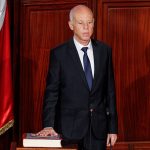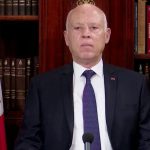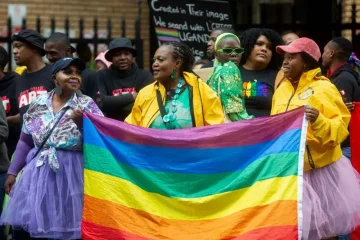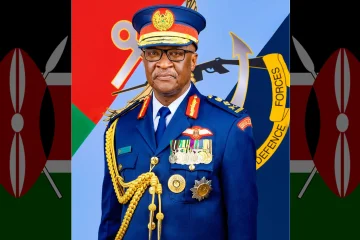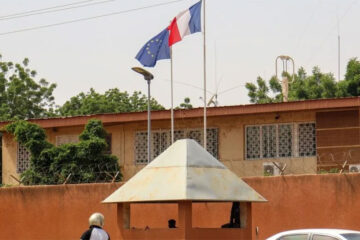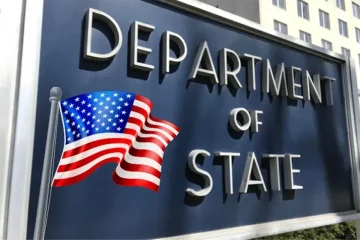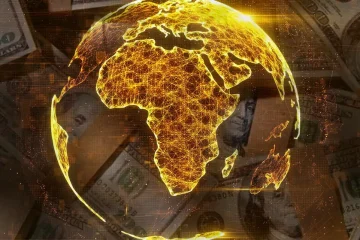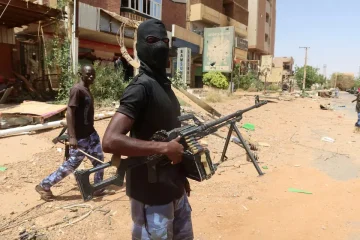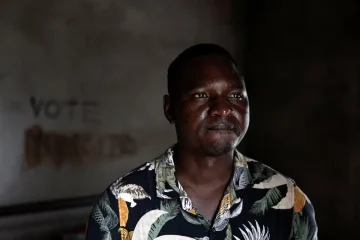TAREK AMARA and ANGUS McDOWALL
TUNISIA is facing the worst crisis in its decade of democracy after President Kais Saied ousted the government and suspended parliament with help from the army, a move denounced as a coup by the country’s main parties, including Islamists.
He extended some existing measures aimed at countering the pandemic, including a curfew and internal travel bans, but which would also have the effect of dampening street opposition.
Saied’s action followed months of deadlock and disputes pitting him against Prime Minister Hichem Mechichi and a fragmented parliament as Tunisia descended into an economic crisis exacerbated by one of Africa’s worst COVID-19 outbreaks.
The crisis risks morphing into street confrontations as Saied’s critics, including Islamists repressed for decades under a previous autocracy, warned he was endangering the democratic system introduced after the 2011 Arab Spring uprising.
The White House voiced concern on Monday but said it had not yet determined whether Saied’s actions constituted a coup.
Rival groups faced off outside the parliament building on Monday, pelting each other with stones and hurling insults, but the size of the protests was limited to hundreds, and there were no major reported incidents of violence.
The military surrounded the parliament and government palace, stopping MPs and state workers from entering the buildings, as well as the national television station.
Saied, who invoked emergency powers under the constitution late on Sunday to dismiss Mechichi and suspend parliament for 30 days, on Monday stopped travel between cities for a month and tightened pandemic curfew restrictions.
He also reiterated a long-existing rule that has not been commonly observed banning public gatherings of three or more people in streets or squares.
His intervention followed protests in major cities on Sunday over the government’s handling of the pandemic, with a spike in cases, and economy. He has rejected accusations of a coup.
Large crowds quickly poured into the streets to support his moves, reflecting anger at the moderate Islamist Ennahda – the biggest party in parliament – and the government over political paralysis, economic stagnation and the pandemic response.
The economy shrank 8% last year. Tunisia has one of the highest COVID-19 death rates in the region. On Monday, Tunisia’s hard-currency bonds tumbled.
Parliament Speaker Rached Ghannouchi, the head of Ennahda, which has played a role in successive coalition governments, condemned it as an assault on democracy and urged Tunisians to take to the streets in opposition.
“Kais Saied is dragging the country into catastrophe,” he told Turkish television.
There was no public appearance or statement from Mechichi, who is at his home but not under arrest, one source close to him and two Tunisian security sources said.
Saied, who has not said when he will appoint a new premier or relinquish emergency powers, has also ordered that state administrations and foreign institutions stop work for two days.
‘NEW SISI’
Though it has failed to deliver prosperity or good governance, Tunisia’s democratic experiment since 2011 has stood in stark contrast to the fate of other countries where Arab Spring revolts ended in bloody crackdowns and civil war.
Outside parliament, supporters of Saied and Ennahda hurled insults and bottles at each other.
“We are here to protect Tunisia. We have seen all the tragedies under the rule of the Muslim Brotherhood,” said a young man who gave his name as Ayman.
He was referring to the Islamist movement founded in Egypt in 1928 which inspired Sunni Islamists across the Arab world, including Ennahda.
Imed Ayadi, an Ennahda member, likened Saied to Egyptian President Abdel-Fattah al-Sisi, who deposed the Brotherhood’s elected former President Mohamed Mursi and banned the group in 2013. In recent years, Ennahda has sought to distance itself from the Brotherhood.
“Saied is a new Sisi who wants to collect all authority for himself …We will stand up to the coup against the revolution,” Ayadi said.
Saied has said any violent opposition will be met with force. He swept to office in 2019 promising to fight the scourge of a corrupt, incompetent elite.
He framed his actions as a constitutional and popular response to years of economic and political paralysis, and said Article 80 of the constitution gave him power to dismiss the government, appoint a temporary administration, freeze parliament and lift the immunity of its members.
The article requires consultation with the prime minister and parliament speaker. Ghannouchi has denied being consulted. Mechichi has not spoken in public.
It also requires approval by a constitutional court that has not yet been created.
Two of the other main parties in parliament, Heart of Tunisia and Karama, joined Ennahda in accusing Saied of a coup.
The international response was muted on Monday, as regional allies of Ennahda, including Turkey, decried Saied’s moves as a coup.


